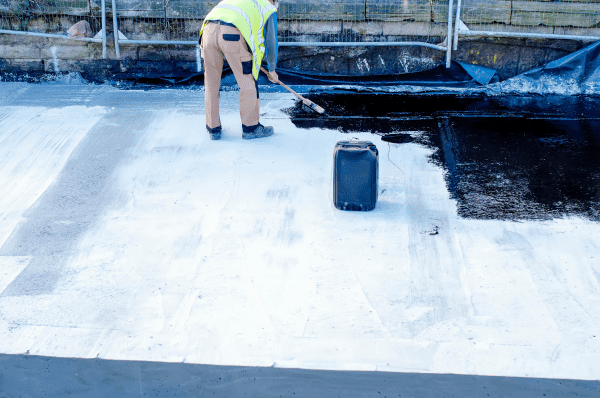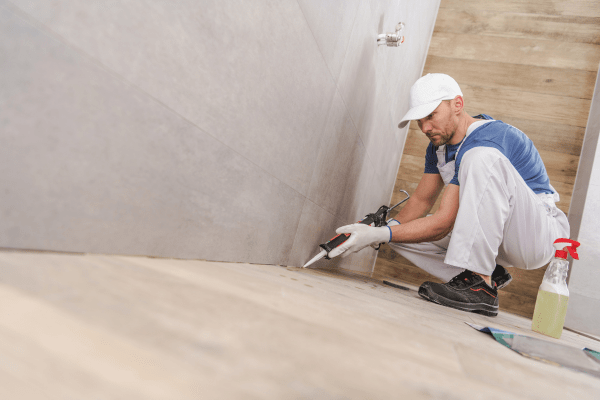Concrete Weatherproofing in Sacramento
Concrete is a part of our daily life and it’s sturdy, reliable, and the backbone of so many structures that support our daily lives. Concrete weatherproofing in Sacramento is essential for ensuring its long-lasting durability and maintaining its structural integrity. In Sacramento, where the weather can change rapidly, it’s essential to take good care of your concrete.
Although, concrete seems so strong but it can still be damaged by the weather. When you think of concrete as the foundation of your driveway, patio, or walkway, you probably think its smooth surface and its ability to hold weight. But do you ever think about protecting it from the weather to make sure it stays that way? In this blog post, we’ll discuss about how to keep your concrete safe from the elements so it lasts a long time.
Understanding Concrete Weatherproofing
Before going for products to weather proof your concrete, it’s necessary to understand what weatherproofing really means for concrete and why it’s important in Sacramento’s climate.
What is Concrete Weatherproofing?
It’s the process of applying protective layer to concrete surfaces which acts as a protector against weather or climate-induced damage. Moreover, these protective measures ensures that concrete should bear the storms, moisture, freeze-thaw cycles, and other climatic situations.

Benefits Of Weatherproofing
It’s advantages are amazing and the bigger one is durability of concrete. With accurate and right approach, concrete will resist against major problems like cracking, spalling, and corrosion. This will also increase concrete life and save your bucks and expensive concrete repairs.
Tips for Concrete weatherproofing in Sacramento
Here are different tips for weatherproofing your concrete.
Surface Prepration
Most important and tough part is to clean the surface. Start by cleaning the concrete really well with a pressure washer to get rid of any old coatings, dirt, or white stuff called efflorescence. If the surface isn’t smooth, you may have to grind or fill it to ensure the sealant is applied evenly. Moreover, concrete resurfacing also plays an important role in protecting concrete.
Accurate Sealing
As mentioned above, right sealant is an important product. For walls, sealant should stick without dripping. For surfaces, pick a sealant that can bear human foot traffic and vehicles movement. There are various types of sealants with their pros and cons, some form a layer on surface while others go deep into the concrete. Penetrating sealant is the most popular nowadays.
Proper Sealing
Sealant really matters in securing your concrete. It should match with the concrete’s texture and the weather conditions. Must check the surface before applying sealant and there shouldn’t be any previous sealant or containment which can stop the new one to sticking. Remember, clean the surface and remove dirt, oil, or anything else on surface. Use brush, roller, or dryer to put sealant.
How to Apply Sealant
How you put on the sealant can make a big difference in how long it lasts and how well it works. Usually, there are three main ways: spraying, rolling, and putting it on by hand. For small surfaces or spots, using your hands gives you more control. For bigger areas, spraying might be faster, but be careful not to spray too much. Rolling can be a good middle ground, giving you control and speed at the same time. Always follow the concrete contractor guidelines to get the best results.

Maintenance
To make sure the weatherproofing keeps working well, it’s important to take care of it regularly. Keep the surface clean because dirt can rub away the protective layer over time. Also, check the concrete often for any signs of damage on the sealed parts.
DIY vs. Professional Weatherproofing
However, you can do it just like DIY vs Professional concrete repairs but there’s a difference in work of both. The choice depends on job level, experience level and your budget.
Pros and Cons of DIY Weatherproofing
Doing it yourself can save money because buying the sealant and tools is usually cheaper than paying a professional. Moreover, you get to decide when to do the job.
On the other side, doing it yourself takes time, effort, and some skill. If you don’t do it right, you might doubt that your concrete is protected or not. At the end, you might need to get a professional to fix it later on.
Professional Weatherproofing
Getting a professional help in tricky and large project is good for long-lasting and good results. Experts know what they’re doing and they have right tools to do the job well, which helps avoid expensive mistakes.
If your concrete gets a lot of use, is badly damaged, or is part of a big structure, paying for professional weatherproofing is a good option. Pros can give you peace of mind and guarantee that the job is done right.
Frequently Asked Questions
Reapply sealant every 1-3 years, depending on usage and exposure to weather conditions. Regular maintenance helps maintain the protective layer and prolongs the lifespan of the concrete.
It’s best to apply sealant when the weather is dry and temperatures are moderate. Rain can interfere with the bonding process and affect the effectiveness of the sealant.
Yes, removing old sealant ensures proper adhesion and a uniform application of the new sealant. Failure to remove old sealant may result in uneven coverage and reduced effectiveness of the weatherproofing treatment.
Last Words
Taking care of concrete in best investment in a long term run. No doubt, you can’t control the weather, but you can control how it affects your concrete. Whether you do it yourself or hire professionals for concrete weatherproofing in Sacramento, taking steps to weatherproof your concrete now will be worth it in the future.







